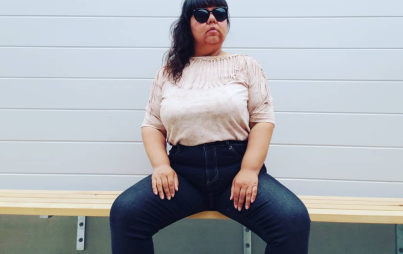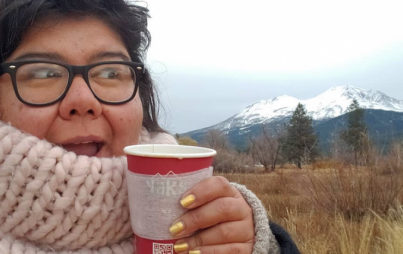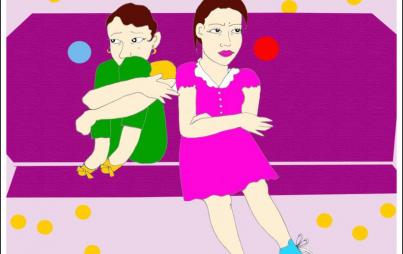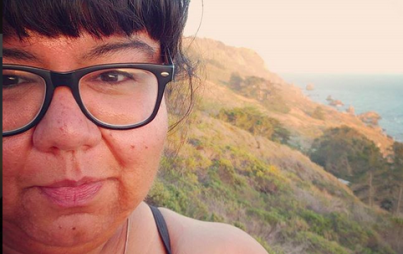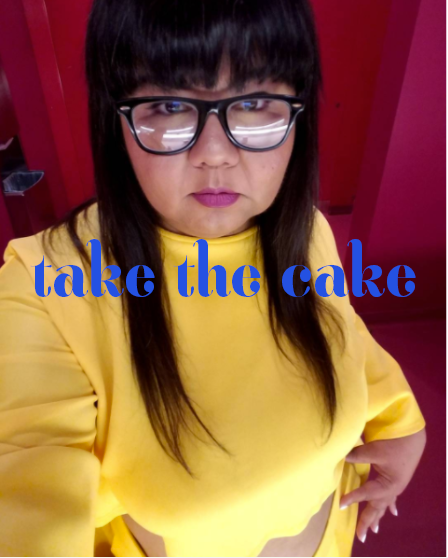
My parents wanted our family to be in high-threat mode because it kept us closer.
I used to play this morbid game in my head while I lay in bed at night. Sunset always makes room for unresolved feelings to metastasize into dark thoughts, I've found.
The game was about shame. I would list out all the reasons that my feelings toward my family were wrong, invalid, and selfish.
I grew up in a multi-generational home. My childhood was spent with a part-time mother, a full-time grandmother and grandfather, and my aunt. And so I would tell myself that if I were someone else (someone a little more resilient), I would just be able to allow all the awful moments to wash over me.
Like the time my grandfather lost his damn mind on the way to Thanksgiving one year and ended up screaming and shaking with rage because we couldn’t figure out how to find the venue. I felt terrified and trapped, sitting in a moving vehicle next to a grown man slamming his fists into the steering wheel, like a toddler.
I would tell myself that if I were a more generous person, all the hurtful experiences I remember would be fodder for jokes over family meals. Like the time I was five or six and my mom took me to a meth house with no working plumbing and left me alone while her friend’s son and I leafed through his dad’s Playboys for hours.
I couldn't let myself understand why it was that I hated going home. Why did my body rebel each occasion that it was time to go have a visit? It felt like I was dragging my 5-year-old self kicking and screaming back to a place she saw as dangerous.
I come from a dramatic and highly emotive family. Grand gestures and superlative speech are common. It’s completely normal for my grandmother to greet me by saying “Seeing you is like a drop of water on a dying man’s tongue.”
I still hate Sundays because when I was a kid that was Church Day — my emotionally volatile grandfather's one day off. Home was awful on Church Day. My grandmother would be frantic. My grandfather was always searching for something to punish. She would desperately roll my tights up my chubby thighs. I would ask her to make my pony tail as tight as humanly possible. Make it hurt. An early sign of my anxiety.
Sometimes I wake up on Sundays and it feels like something dank has entered my frame of existence. I have to speak to my inner child, telling her that we aren't home anymore. We can go have brunch or run around in Golden Gate Park or laugh all day if we want.
I come from a dramatic and highly emotive family. Grand gestures and superlative speech are common. It’s completely normal for my grandmother to greet me by saying “Seeing you is like a drop of water on a dying man’s tongue.” I grew up with my grandfather laying out elaborate counter-factual scenarios where I had to solve some kind of emotional puzzle that proved my allegiance to him and my family.
And there was a whole lot of death talk. I’m sure that each of my family members have told me at least once that they’d either take a bullet, walk into a burning building, or cut off their own arm as a gesture of self-sacrificial love for me.
I always knew my mother and grandmother would die for me, would take on an illness for me, or would sacrifice their life to save mine. I realized recently, however, that what I really needed from them was less dramatic than all that. I needed my mom to go to therapy. I needed my grandma to hear me when I tried to tell her about my life.
More than lip service to an unlikely situation, I needed accountability. Small things that required less bravado, but more work.
I’ve come to realize that these kinds of statement are manipulative. They made me doubt myself. If someone is willing to die for you, then what else could you reasonably ask of them? When we take a situation to its catastrophic extreme, we become less able to navigate our emotions in a measured, grounded way. My parents wanted our family to be in high-threat mode because it kept us closer.
Late last year, I started listening to that terrified inner child. I made room for my feelings of anger and sadness and fear. I made my first real attempt at silencing my loud, guilty brain. And just before Christmas, I experienced the moment that made our breakup crystallize.
To Be Continued...




